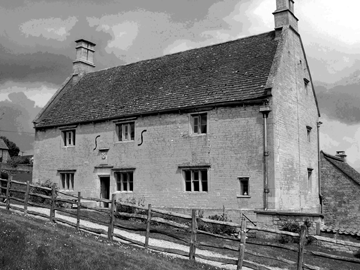- About MAA
- Membership
- MAA Publications
- Periodicals
- Blogs
- MAA Book Series
- MAA Press (an imprint of the AMS)
- MAA Notes
- MAA Reviews
- Mathematical Communication
- Information for Libraries
- Author Resources
- Advertise with MAA
- Meetings
- Competitions
- Programs
- Communities
- MAA Sections
- SIGMAA
- MAA Connect
- Students
- MAA Awards
- Awards Booklets
- Writing Awards
- Teaching Awards
- Service Awards
- Research Awards
- Lecture Awards
- Putnam Competition Individual and Team Winners
- D. E. Shaw Group AMC 8 Awards & Certificates
- Maryam Mirzakhani AMC 10 A Awards & Certificates
- Two Sigma AMC 10 B Awards & Certificates
- Jane Street AMC 12 A Awards & Certificates
- Akamai AMC 12 B Awards & Certificates
- High School Teachers
- News
You are here
Why You Should Take a Mathematical Study Tour
Why You Should Take a Mathematical Study Tour
By Herbert E. KasubeOn the first day of class this fall I stood in front of my calculus I class giving them the ?usual? spiel. I talked about what calculus was about and made a few historical remarks. I told them of Isaac Newton?s contributions and a bit about the Newton-Leibniz controversy. The students all looked rather bored and were probably wondering if they would be tested on this drivel.

Newton's birthplace at Woolsthorpe.
Then I mentioned how this past summer I had walked in Newton?s footsteps. I had toured his birthplace at Woolsthorpe, seen his elementary school in Grantham, visited his halls of Cambridge and finally had visited his final resting place in Westminster Abbey. As I was telling this tale I noticed a change in my students? expressions. Suddenly they seemed more interested in my historical comments. I had got their attention! What afforded me this wonderful teaching opportunity? I had traveled with the MAA?s study tour of England and had the chance to visit places I might not have been able as a ?typical? tourist: Stonehenge at daybreak, the Wren Library at Cambridge, and the Royal Society in London.
This was the MAA?s second annual mathematical study tour. The first visited Greece and Pythagoras? island of Samos while the third is planned for the land of the ancient Mayan civilization. The scenario described above is just one indication as to why one should consider taking such a study tour. Realize that the word ?study? is included here. The world can be your library, your research center. Professional development is a goal for many faculty members. Depending on your particular mathematical interests, such study may be difficult to find. This is often true in studying the history of mathematics. Participating in a mathematical study tour offers an opportunity to see first hand where mathematical history was made. What could be better?
Another outcome of such a trip could be an opportunity to offer a similar experience to students at your institution. Many schools offer study abroad programs for students to visit foreign lands and study subjects such as theatre, art, or music. Seldom is a mathematics course offered. I received a grant from Bradley University?s Office of Teaching Excellence and Faculty Development to help fund my trip with the possibility of someday offering such a course.
Benefits from participation in a mathematical study tour reach beyond the classroom.
Herb Kasube teaches at Bradley University in Peoria, IL.




